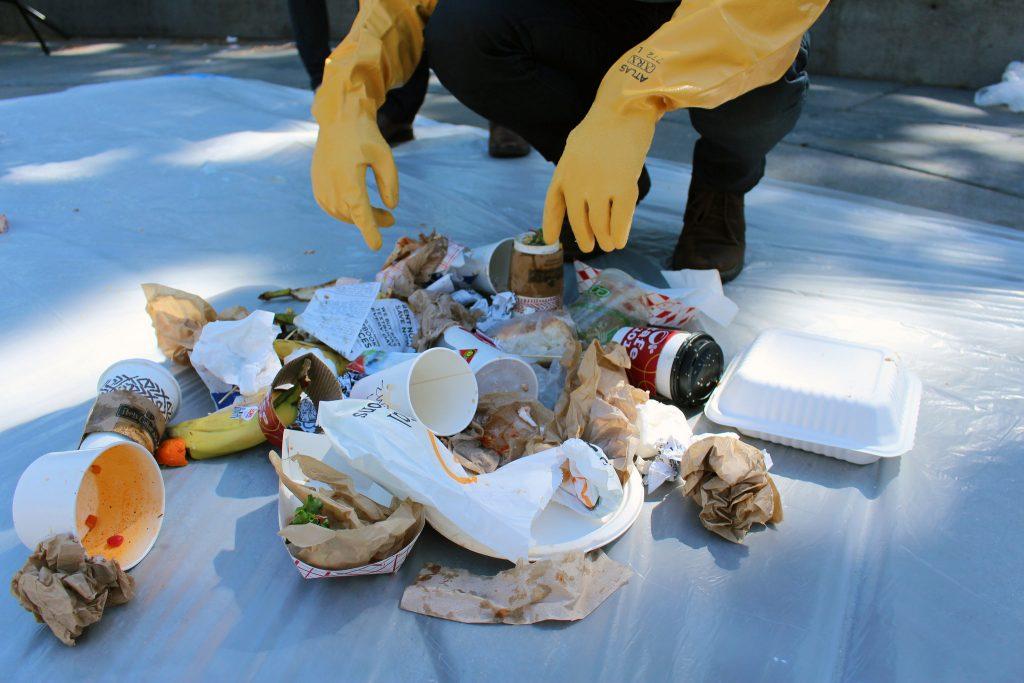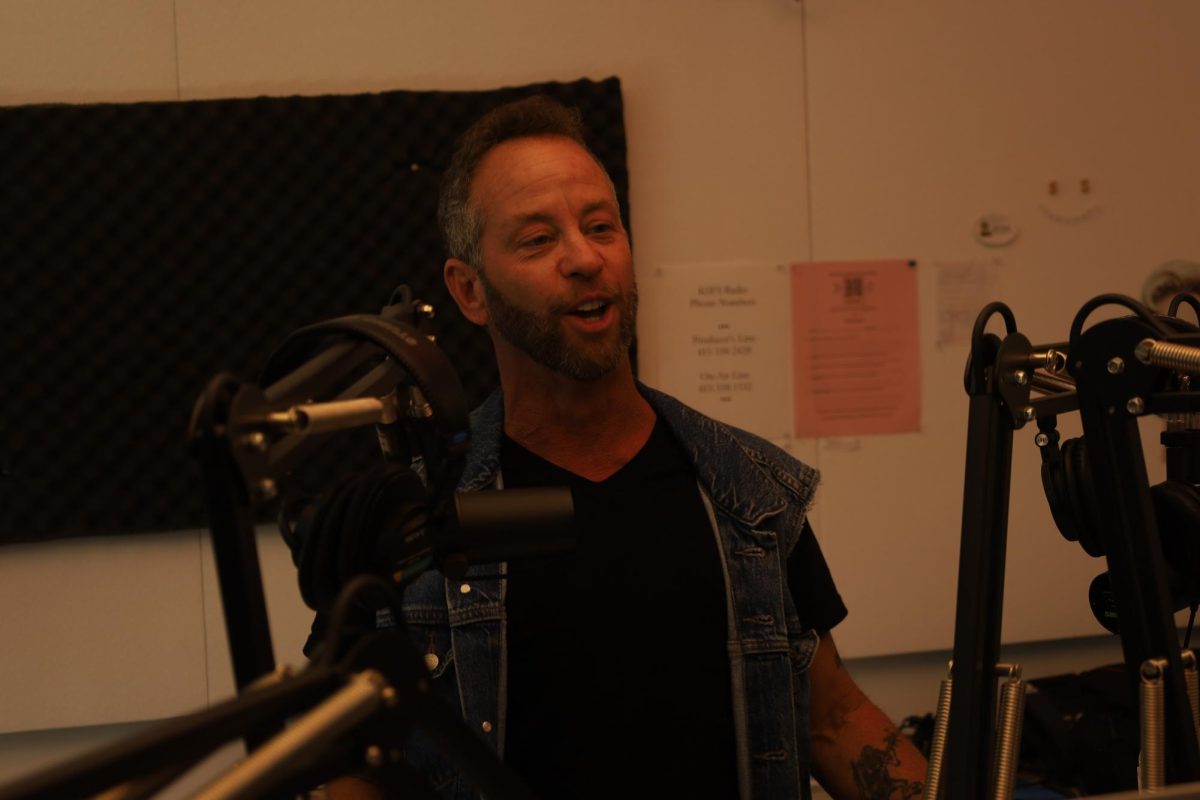[slideshow_deploy id=’67844′]
The Real Food Challenge partnered up with Associated Students, Inc. to introduce an assessment calculator developed by the RFC at the Vendor Sustainability Project Wednesday at a launch party in Malcolm X Plaza.
The calculator was created by RFC, a student-run branch of the national food activism organization, and assesses food on campus based on four categories: local, humane, ecologically sound and fair, according to An Bui, SF State’s RFC president and sustainability manager for the Cesar Chavez Student Center’s Sustainable Initiative program. The assessment will be implemented in SF State for the first time this semester and will assist in maintaining a unique and sustainably green campus for students by offering ethically farmed food choices with ecological disposal methods, according to Bui.
“This project is an intersection of two different philosophies of environmental change. There’s system change and individual action,” according to Liana Derus, the former sustainability manager of RFC. “We want to encourage individuals to properly dispose of their waste in the most environmentally friendly manner. We can’t really put that responsibility on the students, it’s more on the vendor providing the food and packaging.”
The project is the first its kind on any California State University campus, according to Derus. SF State’s RFC group will initially evaluate Shah’s Halal Food, a Greek food eatery in the Cesar Chavez Student Center that volunteered to work with the program.
Educating vendors about waste training, updating vegan and vegetarian options and having conversations about minimal packaging are a few of the project’s objectives, said ASI’s interim sustainability strategist Katherine Day.
Non-profits attended the event to teach students about waste and veganism, which Bui said will hopefully help students select and support sustainable food options that extend beyond the student center to the entire Bay Area.
Factory Farming Awareness Coalition, an educational non-profit organization with a main focus on educating people about the effects of factory farming on the environment, health and animals, attended the event. The organization spoke with students about implementing Green Mondays. According to FFAC Intern and senior environmental studies major, Jamie Smith, Green Mondays will help the school reduce it’s carbon footprint by implementing vegetarian promotions and food rescue initiatives.
“Green Monday is more going and working with vendors to provide sustainable options for food,” Smith said. “We’re trying to get as many presentations as possible in the classrooms and better educate students.”
Sustainable Initiatives received a grant of $2,000 in January 2015 from the California State Student Association’s Green Innovation Fund, which has been used to implement the assessment calculator, according to Day. The group also has a recycle and waste guide for students on its website.
The University Corporation is working with the project to implement sustainable practices into future contracts, according to Derus.
Rachel DeLuca, a senior environmental studies major, believes that SF State holds sustainability as a high value and that it is an important feature of environmentalism on campus.
“I don’t always make sustainable food choices in my own life, so I think SFSU doing that can help other students and myself start to make those choices into habits,” DeLuca said. “The RFC is stepping up for the school and really putting quality and our ethics first, which is a great step for a campus that is commuter based and might not have the time to do this on an individual basis.”





